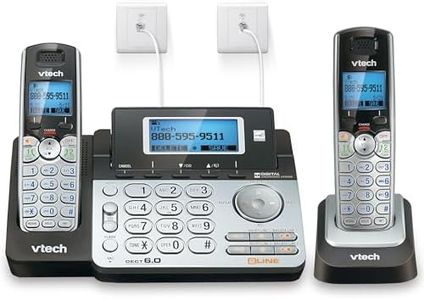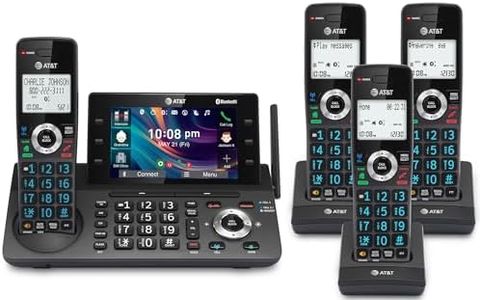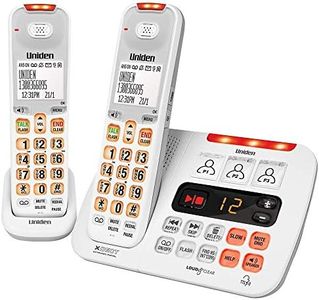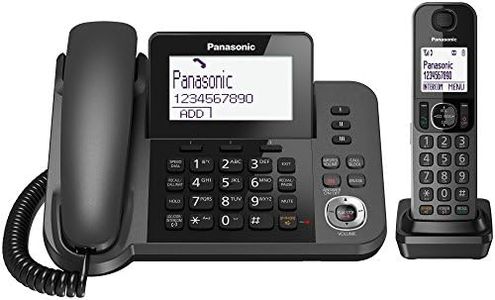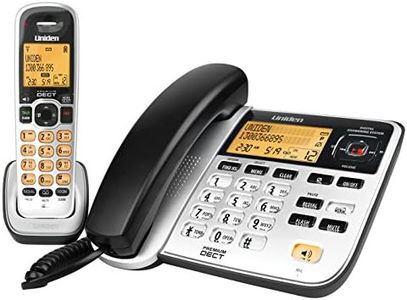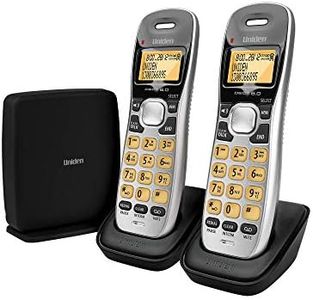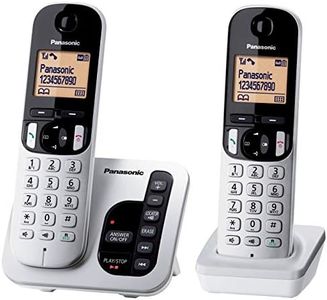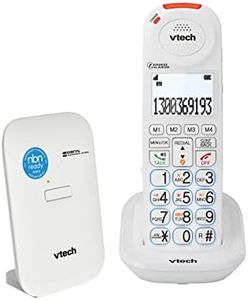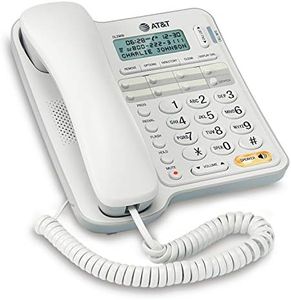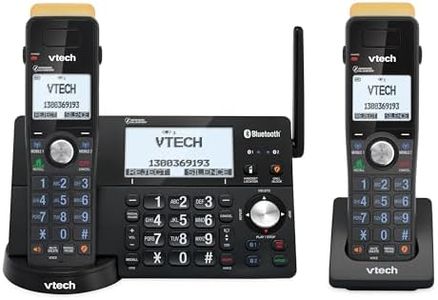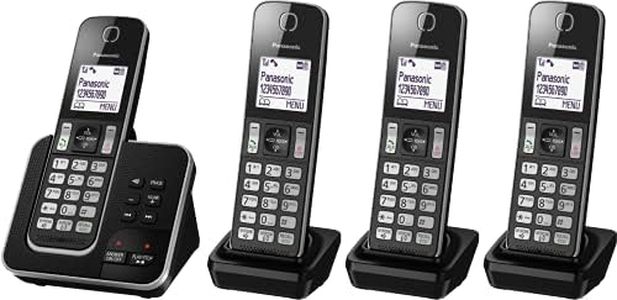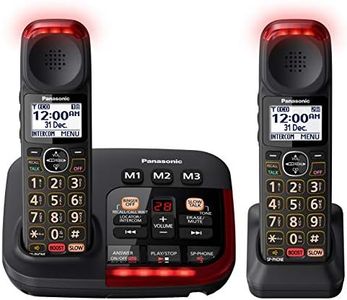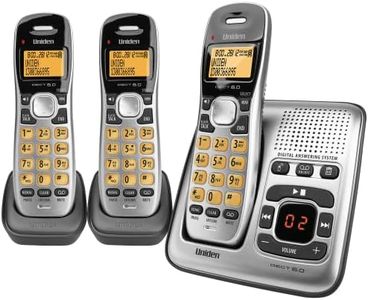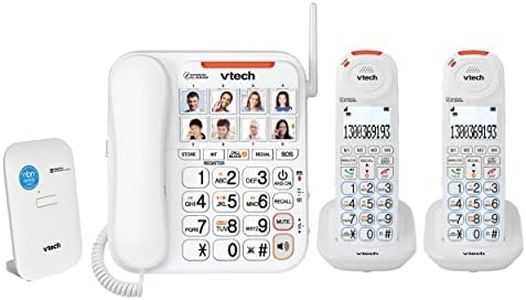We Use CookiesWe use cookies to enhance the security, performance,
functionality and for analytical and promotional activities. By continuing to browse this site you
are agreeing to our privacy policy
10 Best Corded Cordless Phones
From leading brands and best sellers available on the web.By clicking on a link to a third party's website, log data is shared with that third party.
Buying Guide for the Best Corded Cordless Phones
Choosing the right corded or cordless phone for your home or office requires a clear understanding of your needs and the features available. Start by thinking about where you'll use the phone, how many handsets are needed, and how much mobility you require. Corded phones are reliable and powered by a direct line, making them suitable for essential locations, while cordless phones offer flexibility for moving around. Understanding the key specifications will help you select the best fit for your lifestyle.Type (Corded vs. Cordless)This spec refers to whether the phone has a physical wire attaching the handset to the base (corded) or if it allows you to walk around freely (cordless). Corded phones are typically reliable, don't need batteries or recharging, and are handy during power outages. Cordless phones provide convenience and mobility, as you can take calls away from the base station. If you value dependability and plan to keep the phone mostly in one place, corded is ideal. If you need to move around during calls or want phones in different rooms, a cordless or a corded-cordless combo works best.
Number of HandsetsThis spec tells you how many separate handsets come with the phone system or can be added. Single-handset systems work well for small apartments or offices. More handsets offer easier access to calls in different parts of your home or business. Think about how many locations you need phones in to avoid running for the phone each time it rings.
Range (for Cordless Phones)This refers to how far you can travel from the base unit before the connection becomes weak or drops. A short range (up to 100 feet) is fine for small apartments, while medium (100-200 feet) suits most homes. Longer ranges (200+ feet) are needed for big houses or offices. Consider the size and construction of your space—walls and other electronics can affect range.
Battery Life (for Cordless Phones)Battery life is the amount of time a cordless handset can operate before needing to be recharged. Short battery life might mean only a few hours of talk time, while longer life provides days of standby and several hours of talk. If you use the phone often or might forget to return it to the base, look for longer battery life. Choose based on your call habits and how often you want to worry about recharging.
Answering MachineAn answering machine is built into some phone systems, letting callers leave a message if you can't answer. Some phones have a basic answering capability, while others offer features like remote access or voice prompts. If you rely on catching missed calls, pick a system with a reliable answering machine. If you always answer or use voicemail from your service provider, this may not be as important.
Caller ID and Call BlockingCaller ID displays the number (and sometimes name) of incoming callers. Call blocking lets you prevent certain numbers from reaching you. Caller ID is useful for screening calls, while blocking spam or unwanted numbers provides peace of mind. If you get a lot of unknown or nuisance calls, prioritize phones with good call-blocking features.
Speakerphone FeatureThis allows you to talk without holding the handset, using built-in speakers and a microphone. Basic speakerphones are good for hands-free chatting, while better ones allow group conversations with clear sound. If you make long calls, want to multitask, or need group participation, look for a quality speakerphone.
ExpandabilityExpandability lets you add extra handsets to your phone system without new phone lines. Some systems support only a couple of handsets, while others allow many. If you think you might want more phones later, choose a system that's easy to expand.
Volume Controls and Hearing Aid CompatibilityAdjustable volume and compatibility features are offered for those with hearing difficulties. Basic phones have standard volume, while better ones allow more control and work with hearing aids. If you or users have hearing needs, make sure volume and compatibility are adequate.
